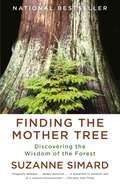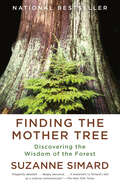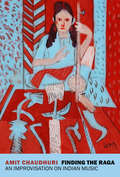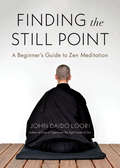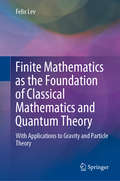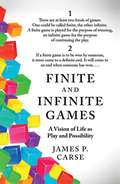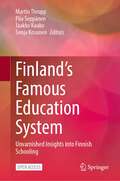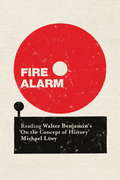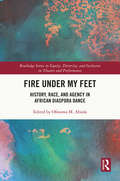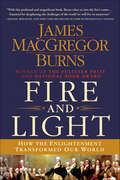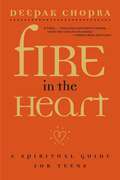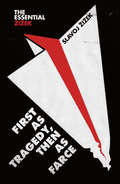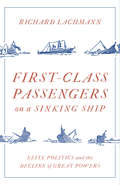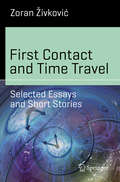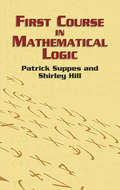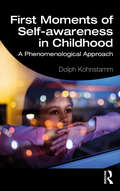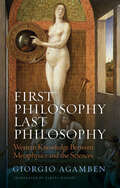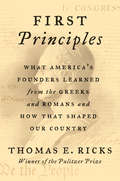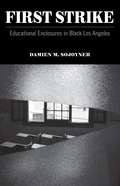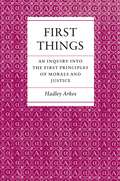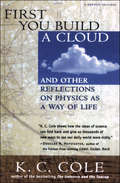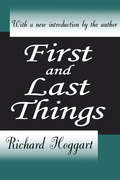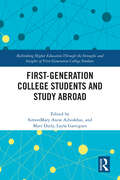- Table View
- List View
Finding the Mother Tree: Discovering the Wisdom of the Forest
by Suzanne SimardA world-leading expert shares her amazing story of discovering the communication that exists between trees, and shares her own story of family and grief. Suzanne Simard is a pioneer on the frontier of plant communication and intelligence; she&’s been compared to Rachel Carson, hailed as a scientist who conveys complex, technical ideas in a way that is dazzling and profound. Her work has influenced filmmakers (the Tree of Souls in James Cameron&’s Avatar), and her TED talks have been viewed by more than 10 million people worldwide. Now, in her first book, Simard brings us into her world, the intimate world of the trees, in which she brilliantly illuminates the fascinating and vital truths—that trees are not simply the source of timber or pulp but are a complicated, interdependent circle of life; that forests are social, cooperative creatures connected through underground networks by which trees communicate their vitality and vulnerabilities with communal lives not that different from our own. Simard describes up close—in revealing and accessible ways—how trees, living side by side for hundreds of years, have evolved; how they perceive one another, learn and adapt their behaviors, recognize neighbors, and remember the past; how they have agency about their future; how they elicit warnings and mount defenses, compete and cooperate with one another with sophistication: characteristics previously ascribed to human intelligence, traits that are the essence of civil societies. And, at the center of it all, the Mother Trees: the mysterious, powerful forces that connect and sustain the others that surround them.Simard, born and raised in the rain forests of British Columbia, spent her days as a child cataloging the trees from the forest; she came to love and respect them and embarked on a journey of discovery and struggle. Her powerful story is one of love and loss, of observation and change, of risk and reward. And it is a testament to how deeply human scientific inquiry exists beyond data and technology: it&’s about understanding who we are and our place in the world. In her book, as in her groundbreaking research, Simard proves the true connectedness of the Mother Tree to the forest, nurturing it in the profound ways that families and humansocieties nurture one another, and how these inseparable bonds enable all our survival.
Finding the Mother Tree: Discovering the Wisdom of the Forest
by Suzanne SimardNEW YORK TIMES BEST SELLER • From the world's leading forest ecologist who forever changed how people view trees and their connections to one another and to other living things in the forest—a moving, deeply personal journey of discovery&“Finding the Mother Tree reminds us that the world is a web of stories, connecting us to one another. [The book] carries the stories of trees, fungi, soil and bears--and of a human being listening in on the conversation. The interplay of personal narrative, scientific insights and the amazing revelations about the life of the forest make a compelling story.&”—Robin Wall Kimmerer, author of Braiding SweetgrassSuzanne Simard is a pioneer on the frontier of plant communication and intelligence; her TED talks have been viewed by more than 10 million people worldwide.In this, her first book, now available in paperback, Simard brings us into her world, the intimate world of the trees, in which she brilliantly illuminates the fascinating and vital truths--that trees are not simply the source of timber or pulp, but are a complicated, interdependent circle of life; that forests are social, cooperative creatures connected through underground networks by which trees communicate their vitality and vulnerabilities with communal lives not that different from our own. Simard writes--in inspiring, illuminating, and accessible ways—how trees, living side by side for hundreds of years, have evolved, how they learn and adapt their behaviors, recognize neighbors, compete and cooperate with one another with sophistication, characteristics ascribed to human intelligence, traits that are the essence of civil societies--and at the center of it all, the Mother Trees: the mysterious, powerful forces that connect and sustain the others that surround them. And Simard writes of her own life, born and raised into a logging world in the rainforests of British Columbia, of her days as a child spent cataloging the trees from the forest and how she came to love and respect them. And as she writes of her scientific quest, she writes of her own journey, making us understand how deeply human scientific inquiry exists beyond data and technology, that it is about understanding who we are and our place in the world.
Finding the Raga: An Improvisation on Indian Music
by Amit ChaudhuriAn autobiographical exploration of the role and meaning of music in our world by one of India's greatest living authors, himself a vocalist and performer.Amit Chaudhuri, novelist, critic, and essayist, is also a musician, trained in the Indian classical vocal tradition but equally fluent as a guitarist and singer in the American folk music style, who has recorded his experimental compositions extensively and performed around the world. A turning point in his life took place when, as a lonely teenager living in a high-rise in Bombay, far from his family&’s native Calcutta, he began, contrary to all his prior inclinations, to study Indian classical music. Finding the Raga chronicles that transformation and how it has continued to affect and transform not only how Chaudhuri listens to and makes music but how he listens to and thinks about the world at large. Offering a highly personal introduction to Indian music, the book is also a meditation on the differences between Indian and Western music and art-making as well as the ways they converge in a modernism that Chaudhuri reframes not as a twentieth-century Western art movement but as a fundamental mode of aesthetic response, at once immemorial and extraterritorial. Finding the Raga combines memoir, practical and cultural criticism, and philosophical reflection with the same individuality and flair that Chaudhuri demonstrates throughout a uniquely wide-ranging, challenging, and enthralling body of work.
Finding the Still Point: A Beginner's Guide to Zen Meditation (Zen Buddhism Ser.)
by John Daido LooriOne of the simplest, easiest-to-understand guides to Zen meditation--with audio exercises to serve as meditation companions.Through Zen meditation it is possible to find stillness of mind even amidst our everyday activities--and this book reveals how. With easy-to-understand instructions, practical lessons, and short-but-sweet tid-bits of useful information, beloved Zen master John Daido Loori shares the way of Zen meditation in terms that even those starting from the very beginning can understand. Guided audio instructions--available for download online--supplement the teachings throughout the book, giving beginners the tools they need to take that first step into Zen practice and meditation.
Finite Mathematics as the Foundation of Classical Mathematics and Quantum Theory: With Applications to Gravity and Particle Theory
by Felix LevThis book delves into finite mathematics and its application in physics, particularly quantum theory. It is shown that quantum theory based on finite mathematics is more general than standard quantum theory, whilst finite mathematics is itself more general than standard mathematics.As a consequence, the mathematics describing nature at the most fundamental level involves only a finite number of numbers while the notions of limit, infinite/infinitesimal and continuity are needed only in calculations that describe nature approximately. It is also shown that the concepts of particle and antiparticle are likewise approximate notions, valid only in special situations, and that the electric charge and baryon- and lepton quantum numbers can be only approximately conserved.
Finite and Infinite Games
by James Carse“There are at least two kinds of games,” states James P. Carse as he begins this extraordinary book. “One could be called finite; the other infinite.” Finite games are the familiar contests of everyday life; they are played in order to be won, which is when they end. But infinite games are more mysterious. Their object is not winning, but ensuring the continuation of play. The rules may change, the boundaries may change, even the participants may change—as long as the game is never allowed to come to an end. What are infinite games? How do they affect the ways we play our finite games? What are we doing when we play—finitely or infinitely? And how can infinite games affect the ways in which we live our lives? Carse explores these questions with stunning elegance, teasing out of his distinctions a universe of observation and insight, noting where and why and how we play, finitely and infinitely. He surveys our world—from the finite games of the playing field and playing board to the infinite games found in culture and religion—leaving all we think we know illuminated and transformed. Along the way, Carse finds new ways of understanding everything, from how an actress portrays a role to how we engage in sex, from the nature of evil to the nature of science. Finite games, he shows, may offer wealth and status, power and glory, but infinite games offer something far more subtle and far grander. Carse has written a book rich in insight and aphorism. Already an international literary event, Finite and Infinite Games is certain to be argued about and celebrated for years to come. Reading it is the first step in learning to play the infinite game.
Finite and Infinite Games
by James Carse"There are at least two kinds of games," states James Carse as he begins this extraordinary book. "One could be called finite; the other infinite." Finite games are the familiar contests of everyday life; they are played in order to be won, which is when they end. But infinite games are more mysterious. Their object is not winning, but ensuring the continuation of play. The rules may change, the boundaries may change, even the participants may change--as long as the game is never allowed to come to an end. What are infinite games? How do they affect the ways we play our finite games? What are we doing when we play--finitely or infinitely? And how can infinite games affect the ways in which we live our lives? Carse explores these questions with stunning elegance, teasing out of his distinctions a universe of observation and insight, noting where and why and how we play, finitely and infinitely. He surveys our world--from the finite games of the playing field and playing board to the infinite games found in culture and religion--leaving all we think we know illuminated and transformed. Along the way, Carse finds new ways of understanding everything from how an actress portrays a role, to how we engage in sex, from the nature of evil, to the nature of science. Finite games, he shows, may offer wealth and status, power and glory. But infinite games offer something far more subtle and far grander. Carse has written a book rich in insight and aphorism. Already an international literary event, Finite and Infinite Games is certain to be argued about and celebrated for years to come. Reading it is the first step in learning to play the infinite game.
Finite and Infinite: A Philosophical Essay
by Austin Marsden FarrerThis work has been selected by scholars as being culturally important and is part of the knowledge base of civilization as we know it. <p><p>This work is in the public domain in the United States of America, and possibly other nations. Within the United States, you may freely copy and distribute this work, as no entity (individual or corporate) has a copyright on the body of the work. <p><p>Scholars believe, and we concur, that this work is important enough to be preserved, reproduced, and made generally available to the public. To ensure a quality reading experience, this work has been proofread and republished using a format that seamlessly blends the original graphical elements with text in an easy-to-read typeface. We appreciate your support of the preservation process, and thank you for being an important part of keeping this knowledge alive and relevant.
Finland’s Famous Education System: Unvarnished Insights into Finnish Schooling
by Martin Thrupp Jaakko Kauko Piia Seppänen Sonja KosunenThis open access book provides academic insights and serves as a platform for research-informed discussion about education in Finland. Bringing together the work of more than 50 authors across 28 chapters, it presents a major collection of critical views of the Finnish education system and topics that cohere around social justice concerns. It questions rhetoric, myths, and commonly held assumptions surrounding Finnish schooling.This book draws on the fields of sociology of education, education policy, urban studies, and policy sociology. It makes use of a range of research methodologies including ethnography, case study and discourse analysis, and references the work of relevant theorists, including Bourdieu and Foucault. This book aims to provide a critical, updated and astute analysis of the strengths and challenges of the Finnish education system.
Fire Alarm: Reading Walter Benjamin's 'On the Concept of History'
by Chris Turner Michael LowyThis illuminating study of Benjamin's final essay helps unlock the mystery of this great philosopherRevolutionary critic of the philosophy of progress, nostalgic of the past yet dreaming of the future, romantic partisan of materialism -- Walter Benjamin is in every sense of the word an "unclassifiable" philosopher. His essay "On the Concept of History" was written in a state of urgency, as he attempted to escape the Gestapo in 1940, before finally committing suicide.In this scrupulous, clear and fascinating examination of this essay, Michael Löwy argues that it remains one of the most important philosophical and political writings of the twentieth century. Looking in detail at Benjamin's celebrated but often mysterious text, and restoring the philosophical, theological and political context, Löwy highlights the complex relationship between redemption and revolution in Benjamin's philosophy of history.From the Trade Paperback edition.
Fire Under My Feet: History, Race, and Agency in African Diaspora Dance (Routledge Series in Equity, Diversity, and Inclusion in Theatre and Performance)
by Ofosuwa M. AbiolaFire Under My Feet seeks to expose the diverse, significant, and often under-researched historical and developmental phenomena revealed by studies in the dance systems of the African Diaspora. In the book, written documentation and diverse methodologies are buttressed by the experiences of those whose lives are built around the practice of African diaspora dance. Replete with original perspectives, this book makes a significant contribution to dance and African diaspora scholarship simultaneously. Most important, it highlights the work of researchers from Ecuador, India, Puerto Rico, the United States, and the United Kingdom, and it exposes under-researched and omitted voices of the African diaspora dance world of the aforesaid locations and Puerto Rico, Columbia, and Trinidad as well. This study showcases a blend of scholars, dance practitioners, and interdisciplinarity, and engages the relationship between African diaspora dance and the fields of history, performance studies, critical race theory, religion, identity, and black agency.
Fire and Light: How the Enlightenment Transformed Our World
by James MacGregor BurnsThe Pulitzer Prize–winning historian explores history’s most daring and transformational intellectual movement, the European and American Enlightenment.In this engaging, provocative history, James MacGregor Burns illuminates the two-hundred-year conflagration of the Enlightenment, when audacious questions and astonishing ideas tore across Europe and the New World. They transformed thought, overturned governments, and inspired visionary political experiments. Fire and Light brings to life the revolutionary leaders who, armed with a new sense of human possibility, created the modern world. Burns traces the origins of a distinctive American Enlightenment to men like Benjamin Franklin, John Adams, Thomas Jefferson, and James Madison, and their early encounters with incendiary European ideas about liberty and equality. It was these thinker-activists who framed the United States as a grand and continuing experiment in Enlightenment principles.Today the same principles have taken on new urgency around the world: in the turmoil of the Arab world, in the former Soviet Union, and in China, as well as in the United States itself. What should a nation be? What should citizens expect from their government? Who should lead, and how can leadership be made both effective and accountable? What is happiness, and what can the state contribute to it? Burns’s exploration of the ideals and arguments that formed the bedrock of our modern world shines a new light on these ever-important questions.Praise for Fire and Light“With this profound and magnificent book, Burns takes us into the fire’s center. . . . Essential for deciphering the challenges of the world we will live in tomorrow.” —Michael Beschloss, New York Times–bestselling author of Presidential Courage“James MacGregor Burns is a national treasure, and Fire and Light is the elegiac capstone to a career devoted to understanding the seminal ideas that made America—for better and for worse—what it is.” —Joseph J. Ellis, Pulitzer Prize and National Book Award–winning author of Revolutionary Summer“[A] captivating tale. . . . Briskly and beautifully told. . . . Superb.” —Publishers Weekly
Fire in the Heart: A Spiritual Guide for Teens
by Deepak ChopraA fifteen-year-old boy is walking through a swirling fog on his way to school when a voice calls out, "Come here. We need to talk." Out of the mist emerges an old man with a white beard. He is a fantastic figure, as wizardly as Merlin, as wise as Socrates, as peaceful as Buddha. Whoever he is, the old man has appeared on that very day to change the boy's life. "You are old enough to learn about things," he says mysteriously. "And who is going to teach you but me?" The old man gives the boy four days of "soul training," a time of riddles, tricks, parables, and incredible twists that brings out surprising answers to each of four burning questions about spirituality: Do I have a soul? How do wishes come true? What is the supreme force in the universe? How can I change the world? "The old man with the white beard showed me the spiritual side of life," writes Deepak Chopra, "where real passion and excitement come from. So before you begin, take a deep breath. This story could turn out to be yours."
First As Tragedy, Then As Farce
by Slavoj ZizekBillions of dollars have been hastily poured into the global banking system in a frantic attempt at financial stabilization. So why has it not been possible to bring the same forces to bear in addressing world poverty and environmental crisis?In this take-no-prisoners analysis, Slavoj i ek frames the moral failures of the modern world in terms of the epoch-making events of the first decade of this century. What he finds is the old one-two punch of history: the jab of tragedy, the right hook of farce. In the attacks of 9/11 and the global credit crunch, liberalism dies twice: as a political doctrine and as an economic theory.First as Tragedy, Then as Farce is a call for the Left to reinvent itself in the light of our desperate historical situation. The time for liberal, moralistic blackmail is over.
First Class Passengers on a Sinking Ship: Elite Politics and the Decline of Great Powers
by Richard LachmannA history of why great powers decline, from Spain to the United StatesThe extent and irreversibility of US decline is becoming ever more obvious as America loses war after war and as one industry after another loses its technological edge. Lachmann explains why the United States will not be able to sustain its global dominance, and contrasts America's relatively brief period of hegemony with the Netherlands' similarly short primacy and Britain's far longer era of leadership.Decline in all those cases was not inevitable and did not respond to global capitalist cycles. Rather, decline is the product of elites' success in grabbing control over resources and governmental powers. Not only are ordinary people harmed, but also capitalists become increasingly unable to coordinate their interests and adopt policies and make investments necessary to counter economic and geopolitical competitors elsewhere in the world.Conflicts among elites and challenges by non-elites determine the timing and mold the contours of decline. Lachmann traces the transformation of US politics from an era of elite consensus to present-day paralysis combined with neoliberal plunder, explains the paradox of an American military with an unprecedented technological edge unable to subdue even the weakest enemies, and the consequences of finance's cannibalization of the US economy.
First Contact and Time Travel: Selected Essays and Short Stories (Science and Fiction)
by Zoran ŽivkovićThis volume collects both essays and fictional material around two core topics in the long career of the Serbian writer, essayist, researcher, publisher and translator. The first topic - first contact - is chiefly represented by his comprehensive essay on "The Theme of First Contact in the SF Works of Arthur C. Clarke" and reflected on the literary level with his short stories "The Bookshop" and "The Puzzle". Two shorter essays on the second topic - time travel in SF literature - introduce, amongst others, the well-known and fascinating mosaic novel Time Gifts, which skillfully explores the more literary side of the notions of past, present and future. In the annotations the author provides insights into his take on the subjects presented.
First Course in Mathematical Logic (Dover Books on Mathematics)
by Patrick Suppes Shirley HillIn modern mathematics, both the theory of proof and the derivation of theorems from axioms bear an unquestioned importance. The necessary skills behind these methods, however, are frequently underdeveloped. This book counters that neglect with a rigorous introduction that is simple enough in presentation and context to permit relatively easy comprehension. It comprises the sentential theory of inference, inference with universal quantifiers, and applications of the theory of inference developed to the elementary theory of commutative groups. Throughout the book, the authors emphasize the pervasive and important problem of translating English sentences into logical or mathematical symbolism. Their clear and coherent style of writing ensures that this work may be used by students in a wide range of ages and abilities.
First Moments of Self-awareness in Childhood: A Phenomenological Approach
by Dolph KohnstammThis thought-provoking volume explores the phenomenon of childhood experiences of sudden moments of self-awareness. Locating them as meaningful developmental events, it draws on, and is illustrated by, detailed analysis of individuals’ narratives of inner experience and recollections of childhood. Uniquely highlighting the relevant writings of literary figures such as C.G. Jung, Vladimir Nabokov, Ian McEwan, and Henning Mankell, Dolph Kohnstamm explores the construction of selfhood, and the effects it has on time, space, and the other. Together with a chapter assessing the role of the default brain network in the development of self-conception, it both supports and challenges theories of development. First Moments of Self-awareness in Childhood offers a new conception of children’s development of a sense of individuality and will be of great interest to scholars and students of psychology, philosophy, and sociology.
First Philosophy Last Philosophy: Western Knowledge between Metaphysics and the Sciences
by Giorgio AgambenWhat is at stake in that form of inquiry that the western philosophical tradition has called “first philosophy” or “metaphysics”? Is it an abstract, now outmoded branch of philosophy, or does it address a problem that is still of great interest – namely the unity of western knowledge? In fact, metaphysics is “first” only in relation to the other two sciences that Aristotle called “theoretical”: the study of nature (phusikē) and mathematics. It is the strategic sense of this “primacy” that needs to be examined, because what is at issue here is nothing less than the relationship – of domination or subservience, conflict or harmony – between philosophy and science. The hypothesis of this book is that philosophy’s attempt to use metaphysics as a way of securing primacy among the sciences has resulted instead in its subservience: philosophy, once handmaiden to theology (ancilla theologiae), has now become more or less consciously handmaiden to the sciences (ancilla scientiarum). So it is all the more urgent to explore the nature and limits of this primacy and subservience, which is what the present book does through an archaeological investigation of metaphysics. This important rereading of the western philosophical tradition by a leading thinker will be of interest to students and scholars in philosophy, critical theory and the humanities more generally, and to anyone interested in contemporary philosophy and European thought.
First Principles: What America's Founders Learned from the Greeks and Romans and How That Shaped Our Country
by Thomas E. RicksThe Pulitzer Prize-winning journalist and #1 New York Times bestselling author offers a revelatory new book about the founding fathers, examining their educations and, in particular, their devotion to the ancient Greek and Roman classics—and how that influence would shape their ideals and the new American nation. <p><p> On the morning after the 2016 presidential election, Thomas Ricks awoke with a few questions on his mind: What kind of nation did we now have? Is it what was designed or intended by the nation’s founders? Trying to get as close to the source as he could, Ricks decided to go back and read the philosophy and literature that shaped the founders’ thinking, and the letters they wrote to each other debating these crucial works—among them the Iliad, Plutarch’s Lives, and the works of Xenophon, Epicurus, Aristotle, Cato, and Cicero. For though much attention has been paid the influence of English political philosophers, like John Locke, closer to their own era, the founders were far more immersed in the literature of the ancient world. <p> The first four American presidents came to their classical knowledge differently. Washington absorbed it mainly from the elite culture of his day; Adams from the laws and rhetoric of Rome; Jefferson immersed himself in classical philosophy, especially Epicureanism; and Madison, both a groundbreaking researcher and a deft politician, spent years studying the ancient world like a political scientist. Each of their experiences, and distinctive learning, played an essential role in the formation of the United States. In examining how and what they studied, looking at them in the unusual light of the classical world, Ricks is able to draw arresting and fresh portraits of men we thought we knew. <p> First Principles follows these four members of the Revolutionary generation from their youths to their adult lives, as they grappled with questions of independence, and forming and keeping a new nation. In doing so, Ricks interprets not only the effect of the ancient world on each man, and how that shaped our constitution and government, but offers startling new insights into these legendary leaders. <p> <b>A New York Times Bestseller</b>
First Strike: Educational Enclosures in Black Los Angeles
by Damien M. SojoynerCalifornia is a state of immense contradictions. Home to colossal wealth and long portrayed as a bastion of opportunity, it also has one of the largest prison populations in the United States and consistently ranks on the bottom of education indexes. Taking a unique, multifaceted insider&’s perspective, First Strike delves into the root causes of its ever-expansive prison system and disastrous educational policy. Recentering analysis of Black masculinity beyond public rhetoric, First Strike critiques the trope of the &“school-to-prison pipeline&” and instead explores the realm of public school as a form of &“enclosure&” that has influenced the schooling (and denial of schooling) and imprisonment of Black people in California. Through a fascinating ethnography of a public school in Los Angeles County, and a &“day in the life tour&” of the effect of prisons on the education of Black youth, Damien M. Sojoyner looks at the contestation over education in the Black community from Reconstruction to the civil rights and Black liberation movements of the past three decades. Policy makers, school districts, and local governments have long known that there is a relationship between high incarceration rates and school failure. First Strike is the first book that demonstrates why that connection exists and shows how school districts, cities and states have been complicit and can reverse a disturbing and needless trend. Rather than rely upon state-sponsored ideological or policy-driven models that do nothing more than to maintain structures of hierarchal domination, it allows us to resituate our framework of understanding and begin looking for solutions in spaces that are readily available and are immersed in radically democratic social visions of the future.
First Things: An Inquiry into the First Principles of Morals and Justice
by Hadley ArkesThis book restores to us an understanding that was once settled in the "moral sciences": that there are propositions, in morals and law, which are not only true but which cannot be otherwise. It was understood in the past that, in morals or in mathematics, our knowledge begins with certain axioms that must hold true of necessity; that the principles drawn from these axioms hold true universally, unaffected by variations in local "cultures"; and that the presence of these axioms makes it possible to have, in the domain of morals, some right answers. Hadley Arkes restates the grounds of that older understanding and unfolds its implications for the most vexing political problems of our day.The author turns first to the classic debate between Abraham Lincoln and Stephen Douglas. After establishing the groundwork and properties of moral propositions, he traces their application in such issues as selective conscientious objection, justifications for war, the war in Vietnam, a nation's obligation to intervene abroad, the notion of supererogatory acts, the claims of "privacy," and the problem of abortion.
First You Build a Cloud: And Other Reflections on Physics as a Way of Life
by K. C. ColeThis clearly written and compelling look at physics and physicists offers &“thousands of new ways to see our daily world more richly&” (Douglas Hofstadter, author of Gödel, Escher, Bach). For many of us, physics has always been a thing of mystery and complexity. K. C. Cole, an award-winning science writer, specializes in making its wonders accessible to the everyday reader. This book uses lively prose, metaphors, and anecdotes to allow us to comprehend the nuances of physics: gravity and light, color and shape, quarks and quasars, particles and stars, force and strength. It also shows us how the physical world is so deeply intertwined with the ways we think about culture, poetry, and philosophy, and explores the workings of such legendary scientific minds as Richard Feynman, Victor Weisskopf, brothers Frank Oppenheimer and J. Robert Oppenheimer, Philip Morrison, Vera Kistiakowsky, and Stephen Jay Gould. &“An exemplary science writer . . . For readers without scientific background, Cole gracefully introduces relativity, quantum theory, optics, astrophysics, and other significant disciplines, never getting bogged down in unnecessary explanation. Thus, you may not learn all about thermodynamics from reading her chapter on it, but you will learn enough to think seriously about the entropy in your own life. Cole sprinkles her text with comments from famous scientists—&‘Space is blue, and birds fly in it,&’ said Heisenberg, and Faraday said, &‘Nothing is too wonderful to be true&’—that are not only delightful in themselves but perfectly suited to her own text. No review of Cole&’s book could be too wonderful to be true.&” —Booklist
First and Last Things
by Richard HoggartPart meditation, part commonplace book, First and Last Things is an attempt by a writer of great distinction and strong convictions to take stock of his beliefs and values. Here, Richard Hoggart considers the big questions without shortchanging readers with easy answers. He examines problems (as he sees them) of faith; the mysterious origins of conscience; the importance of family and friends; the value of literature; the nature of memory; and the need, in old age, to find some value in existence. To these issues, and many others, the author brings a lifetime of rich experience and a mind well stocked with the best that has been written by those who have gone before. What emerges above all in this work is Richard Hoggart's love of, almost obsession with, quotations from great authors, especially, of course, Shakespeare. He muses on the business of capitalism and democracy, noting a reluctant conclusion that democracy is the least worst form of government, and that capitalism is its inevitable partner, but one which democratic societies should treat with "a very long spoon." He argues that market and consumer driven societies are inevitably led to relativism, head-counting, and populism. The result is a book that is introspective without being self-absorbed, that is thought-provoking but never preaching, that is, profound without being portentous. First and Last Things is a work that the young should read, if only to discover how much there is still to understand, and one that the old will treasure.
First-Generation College Students and Study Abroad (Rethinking Higher Education Through the Strengths and Insights of First-Generation College Students)
by SimonMary Asese Aihiokhai Matt Daily Layla GarriguesThis book showcases the experiences of first-generation college students on study abroad programs.Research shows that study abroad programs develop crucial life skills, provide valuable experiences, and enhance academic achievement. However, only a small percentage of first-generation students access these opportunities. By centering the voices and stories of first-generation students, this book advocates for equity in global education while reimagining study abroad as a more accessible and empowering experience.This book asks how faculty, administrators, and staff can tap into the strengths of first-generation students to increase the number of those who take advantage of their opportunities and explores the ways in which first-generation students contribute to the success and vision of study abroad programs. It will be of interest to scholars studying educational outreach, higher education, and comparative and international education.
